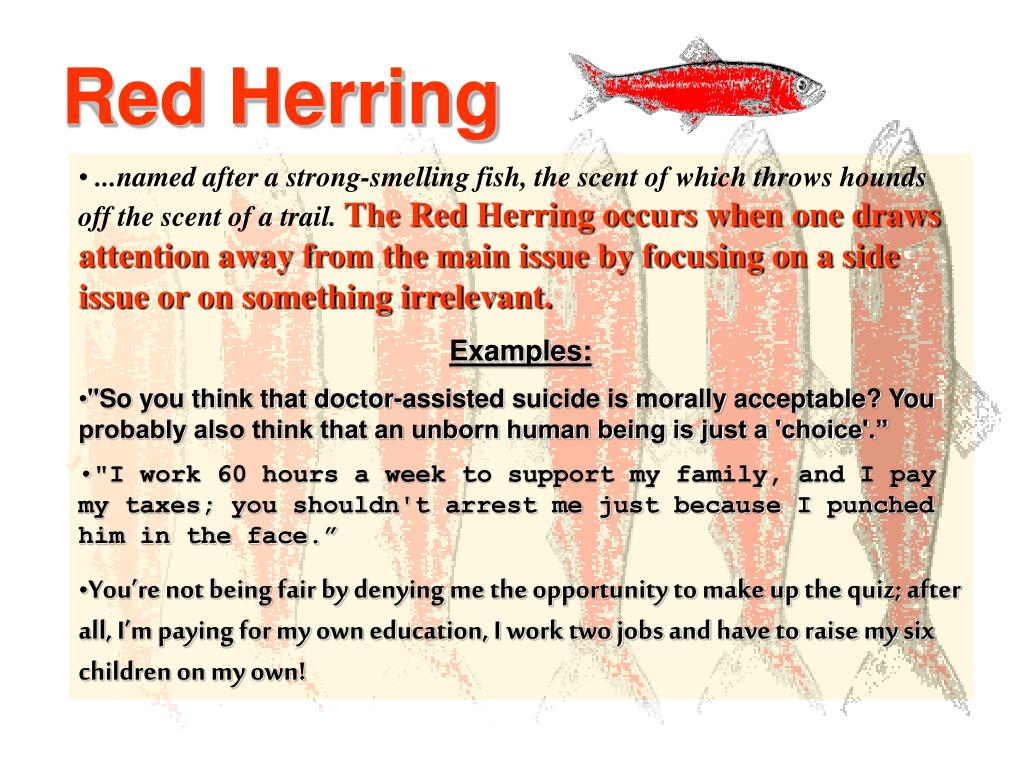
Again the problem is that some alternative explanation or cause might be overlooked. This fallacy is similar to the fallacy of affirming the consequent. Inferring that Q is false just because if P is true, Q is also true, but P is false. Perhaps they hate each other and the party will be ruined. But it does not follow that it will be a good idea to invite all of them to the party. The same might be true of Ben, Chris and David considered individually. Anne might be humorous and fun-loving and an excellent person to invite to the party. The whole is assumed to have the same properties as its parts. Of course, the same question would not count as a fallacy if the presupposition of the question is indeed accepted in the conversational context. For example, if you are asked “Are you still as self-centred as you used to be?”, then no matter you answer “yes” or “no”, you are bound to admit that you were self-centred in the past. Example: “God exists because this is what the Bible says, and the Bible is reliable because it is the word of God.” Complex question or loaded questionĪ question is posed in such a way that a person, no matter what answer he/she gives to the question, will inevitably commit him/herself to some other claim, which should not be presupposed in the context in question.Ī common tactic is to ask a yes-no question that tricks people to agree to something they never intended to say. In arguing for a claim, the claim itself is already assumed in the premise. Of course, if we have evidence showing that P is the only or most likely condition that leads to Q, then we can infer that P is likely to be true without committing a fallacy. But if we argue from his being late to there being a traffic jam, we are guilty of this fallacy – the colleague may be late due to a faulty alarm clock. For example, if there is a traffic jam, a colleague may be late for work. The problem with this type of reasoning is that it ignores the possibility that there are other conditions apart from P that might lead to Q. Inferring that P is true solely because Q is true and it is also true that if P is true, Q is true. Surely you have heard of commercials implying that we should buy a certain product because it has made to the top of a sales rank, or because the brand is the city’s “favourite”. This is the fallacy committed by many commercials. The truth of a claim is established only on the basis of its popularity and familiarity. Of course, pity might be a relevant consideration in certain conditions, as in contexts involving charity. a student argues that the teacher should let him/her pass the examination because he/she needs it in order to graduate. Usually this happens when people argue for special treatment on the basis of their need. In offering an argument, pity is appealed to. Notice also that this fallacy does not apply to situations where there are only two rival claims and one has already been falsified, then we may justly establish the truth of the other even if we cannot find evidence for or against it. But notice, as in cases like this, there is evidence for the law, namely positive instances. the first law of thermodynamics holds because so far there has not been any negative instance that would serve as evidence against it.


At first sight it seems that many theories that we describe as scientific involve such a fallacy. A simple obvious example of such fallacy is to argue that unicorns exist because there is no evidence against such a claim.

The truth of a claim is established only on the basis of lack of evidence against it. You say that only because you cannot find a good job. Example:Ī: The Government should enact minimum-wage legislation so that workers are not exploited.ī: Nonsense. Here are some examples of common fallacies: ad hominem (Latin: “to the man”)Ī theory is discarded not because of any evidence against it or lack of evidence for it, but because of the person who argues for it. We would also be in a position to explain other people’s mistakes. Being familiar with typical fallacies can help us avoid them.

The study of fallacies is an application of the principles of critical thinking. Fallacies are mistakes of reasoning, as opposed to making mistakes that are of a factual nature.


 0 kommentar(er)
0 kommentar(er)
